Movie Review – Public Enemies
Well acted, yet emotionally shallow period film retelling the story of John Dillinger, bank robber extraordinaire. Michael Mann delivers pulse-raising action, yet cannot find the hook for the main characters to bring the audience into this story – making this relevant to modern audiences, either as a morality fable or a straight-up action film seems to have eluded the filmmaker this time around.
– Summary –
Director : Michael Mann
Year Of Release : 2009
Principal Cast : Johnny Depp, Christian Bale, Marion Cotillard, Billy Crudup, Stephen Dorff, Stephen Lang, Channing Tatum, Jason Clarke, David Wenham, Spencer Garrett, Christian Stolte, James Russo, Giovanni Ribisi, John Ortiz, Rory Cochrane, Carey Mulligan, John Michael Bolger, Matt Craven, Lili Taylor, Leelee Sobieski.
Approx Running Time : 2hr 19min
Synopsis: Tasked by the founder of the FBI to track down bank robber John Dillinger, Melvin Purvis uses new scientific methods to hunt the wanted fugitive and his gang.
What we think : Well acted, yet emotionally shallow period film retelling the story of John Dillinger, bank robber extraordinaire. Michael Mann delivers pulse-raising action, yet cannot find the hook for the main characters to bring the audience into this story – making this relevant to modern audiences, either as a morality fable or a straight-up action film seems to have eluded the filmmaker this time around.
**********************
Ahh, the good old gangster film. Dark coats, fedoras, tommy-guns and sharp-as-a-whip broads all speakin’ the lingo of 30’s America, mixed with the heady brew of violence and sex, usually makes up a fine cocktail of crime and runnin’ from the law. Bonnie & Clyde, perhaps the most famous of all films to glorify a pair of real-life criminals, was noted at the time for its then-shocking depiction of violence and raw sexuality, and is by most modern standards the benchmark for all films of the genre. The screen presence of Warren Beatty in that film, as Clyde Barrow, was searing to say the least, while Faye Dunaway ably backed him up as the sultry muse to his violent artistry. Capturing the era, the feeling of disassociation of the time, and the dusty, grimy humanity struggling to survive the wrenching heartache of Depression era America, director Arthur Penn nailed it perfectly. Michael Mann, delivering his own version of the crime film set during the Depression, and retelling key moments in the life of John Dillinger, brings Public Enemies close to that benchmark, yet falls short in the end. While the film often skirts greatness, with some terrific dialogue, Public Enemies feels too aloof and inaccessible for all, save viewers intimately familiar with the era.
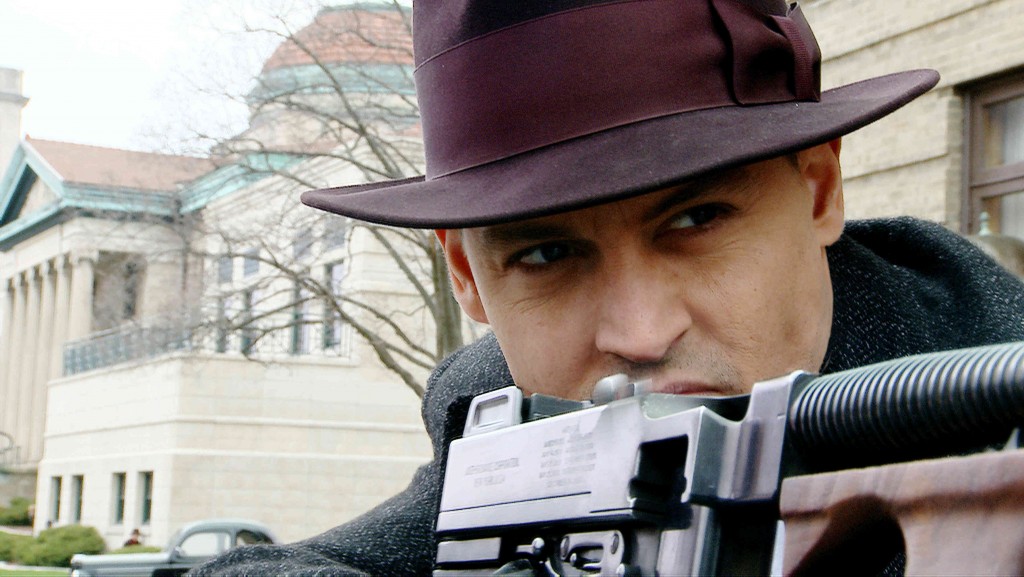
John Dillinger (Johnny Depp), Baby Face Nelson (Stephen Graham) and Tommy Carroll (Spencer Garret) are a trio of bank robbers in 19030’s America. As their crimes become more brazen, and Dillinger skips across state lines leaving the police effectively powerless, the head of what would become the FBI (known at the time as the Bureau of Investigation), J Edgar Hoover (Billy Crudup) instigates the first ever War On Crime, with lead agent Melvin Purvis (Christian Bale) heading up the task force. Purvis’s first order of business is to bring Dillinger and his gang to justice, using the Bureau’s new scientific methods of crime solving. Dillinger, meanwhile, seems to be oblivious to the peril he’s in, courting local Chicago waitress and singer Evelyn “Billie” Frechette (Marion Cotillard) and falling in love with her. As the net begins to close around Dillinger, and his world begins to fall apart, a showdown with Purvis and the Bureau G-men takes shape as each man becomes desperate for an outcome to their conflict.
Michael Mann’s love affair with the crime film continues unabated with Public Enemies, although instead of dealing with it in a modern sense, he returns to a time now long ago for a look into the seedy underbelly of United States history, with the legendary John Dillinger coming into focus. Here, Mann combines the gunplay and death of Heat with the verbal intrigue of Collateral, as well as the large scale casting of Miami Vice to bring the period of 30’s Chicago to brilliantly realized life. The leading cast members, Depp and Bale, with Cotillard as the doe-eyed love interest, do justice to their respective roles, although I think Bale brings more to his admittedly limited role of Purvis than Depp does as the effusive, charming Dillinger. The film isn’t without some pretty major faults, however. The cast can only do so much in the face of a definite lack of cohesion within the bulky, constrained timeframe of the setting, and the lack of audience involvement thanks to a sharply written, yet strangely aloof script.
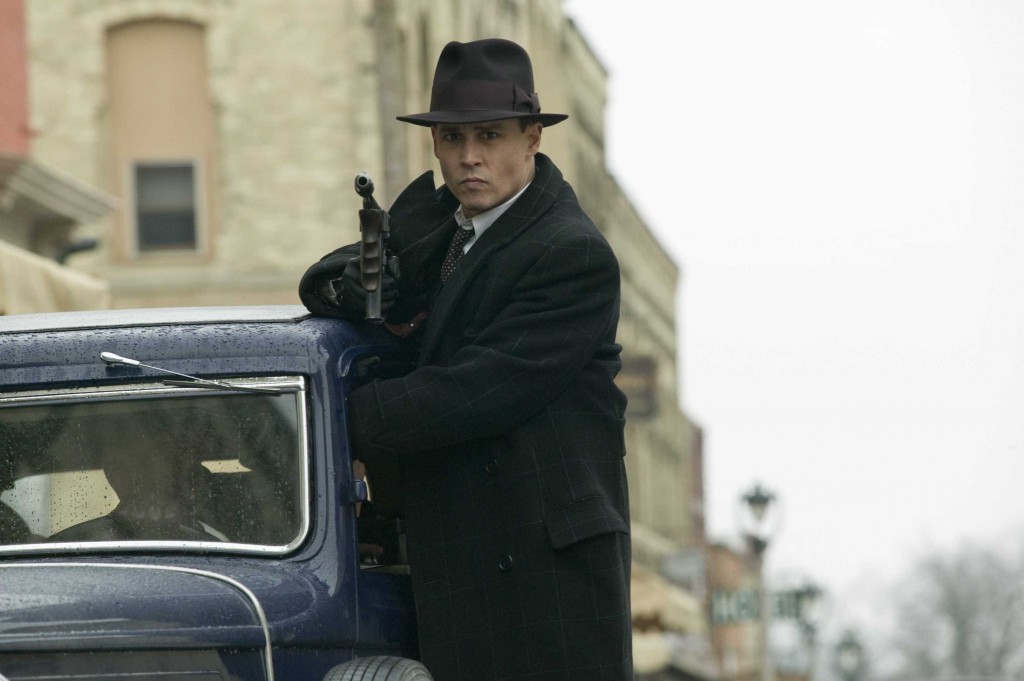
Public Enemies wastes no time with explanatory dialogue or backstory set-up – Mann plunges us into the era and the characters and asks us to catch up or fall behind. Folks who go into this with a limited knowledge of the era, the characters or the social fabric of America at the time may find themselves a little lost throughout – characters aren’t introduced as much as they just arrive, do their thing, and depart. The massive cast, which also includes Giovanni Ribisi, David Wenham, James Russo, John Ortiz, Leelee Sobieski, Lili Taylor, Carey Mulligan, Stephen Dorff and Stephen Lang amongst the players in this piece, somehow become lost amongst the shadows and gunfire, as Mann tries to balance Depps magnetic performance with the smorgasbord of ideas and narrative side-plots on offer. I’m firmly in the camp that believes a quality film should never pander to the audience, never dumb itself down for those who may not “get it”, as such – and Mann typically delivers another film where he suffers no fools gladly, yet for all his bravado at helming such a behemoth of a film, Public Enemies doesn’t really allow even the most astute viewer much room to move.
Dillinger, being the focus of the piece, is written as some sort of legendary icon of the period, and depending on which biographical piece you read, this may or may not be true – he was iconic in terms of being a poster-boy for crime in Chicago and the US at the time, but whether Depps portrayal is accurate is a matter of some conjecture. Regardless, the script is bafflingly obtuse with the nitty-gritty of Dillinger’s personality – at one point, he’s a charismatic charmer and redoubtable scoundrel, and it’s hard to know if Dillinger is merely putting it on, or if he actually believed his own press in this regard. His relationship with Frechette, herself played ably by Marion Cotillard, seems counter-intuitive to the majority of Public Enemies’ narrative – Depp and Cotillard almost become tragic romantics, more like characters in a Mills & Boon novel, than a hardened criminal and his moll. The remainder of the film is typical Mann: hard edged and violent, the way it was in real life.
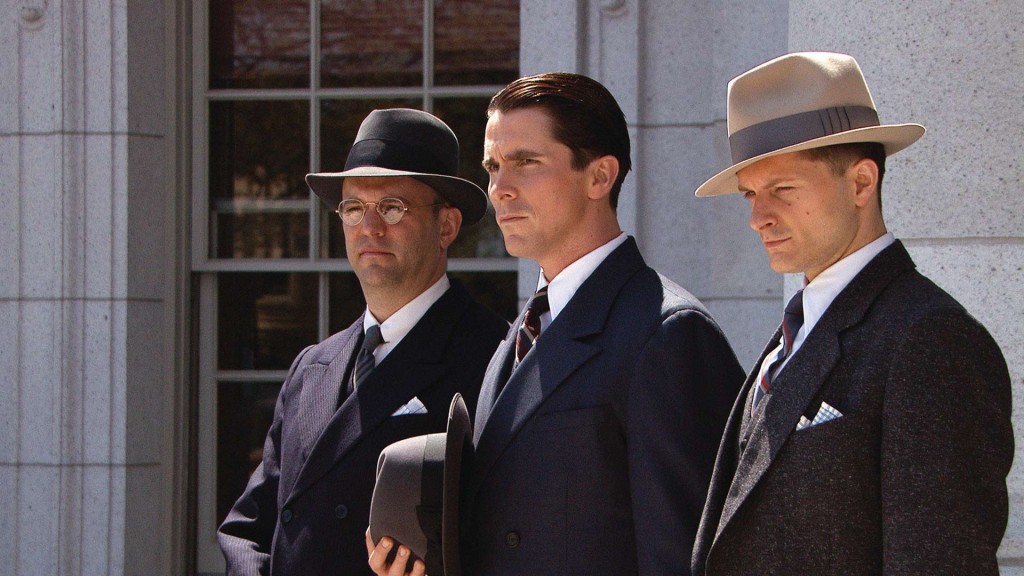
The secondary cast, such as Stephen Graham (best known as Tommy in Guy Ritchie’s Snatch) and Billy Crudup, as J Edgar Hoover, are given short thrift in otherwise excellent roles – Graham in particular gives the nasty Baby Face Nelson a vitriolic, evil persona, even if his grand total of screen time minutes could be counted on one hand. Crudup is little more than a catalyst for the “pursuit” element of the story, and his relationship with Bale’s Purvis is both interesting and underdeveloped. Hoover’s juggernaut of Federal policing could have been a more fascinating sub-plot to the film (perhaps at the expense of the Dillinger/Frechette relationship) and had Mann allowed this side of the story to develop, the film could have been a better crime film than romantic one. Bale’s Purvis is criminally underwritten; we know little about him except that he’s a crack shot, and his character doesn’t really develop outside of the capture of Dillinger focus. Why is he so driven, what’s his motivation, who is he really? We never find out, and as such, Bale’s characterization of him never goes anywhere. He’s a nothing character, when he should have been a major one.
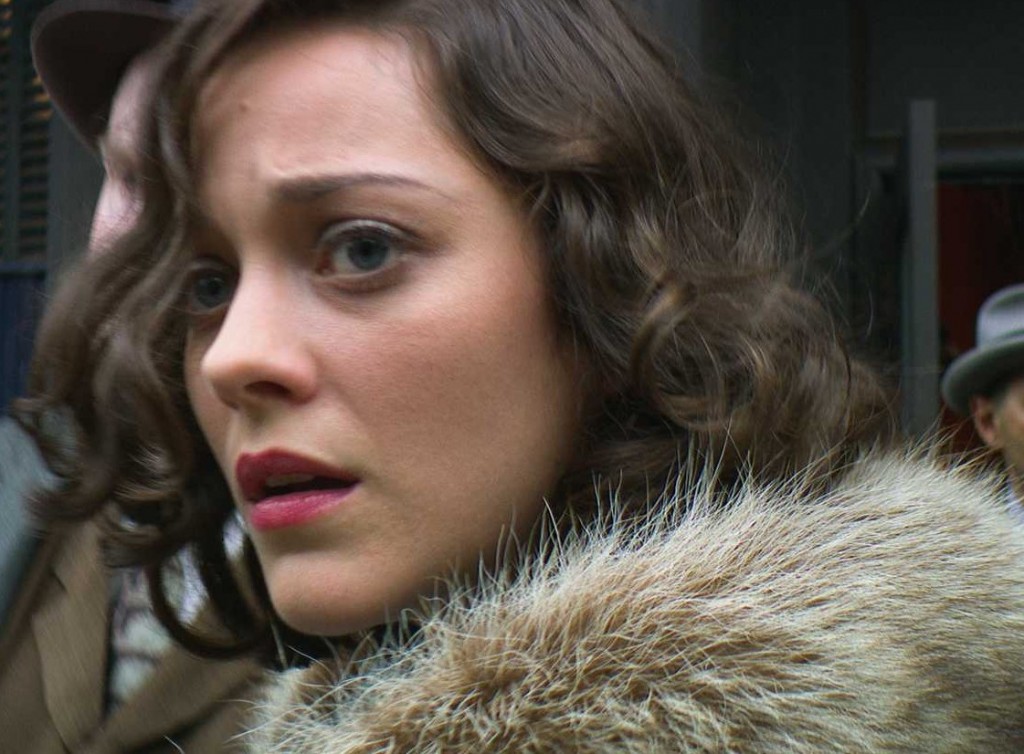
Come to think of it, the same could be said for pretty much every character in the film, with the possible exception of Cotillard’s Frechette – the majority of the characters in Public Enemies have no back-story at all, no genuine heart behind their actions: Stephen Lang’s Texas lawman Charles Winstead, who, according to this film, heard the whispers of a dying Dillinger, is a hard nut, but no provision is made as to why this is so, nor is his character anything but a vague Clint Eastwood caricature – this might look cool, but it adds nothing to the story.
Where Public Enemies excels is in the look and feel of the period, and the action sequences. Production values on this film are excellent, with costuming, set design and cinematography add ensuring the look of the film replicates the depression-era styes and visuals we’ve come to know and love. Dante Spinotti, as DOP, does a superb job rendering the lighting on this film, and he’s not scared to give darkness and shadow free reign at times – a pivotal gun-battle late in the film features a great deal of incomprehensible darkness and shadow, reflective of the mood and character’s mental states at this point of the film. Spinotti also drapes the film in drab monotone when it suits the story, such as the daylight robberies and subsequent getaways, which is more a throwback to the old black-and-white newsreels of the day than a modern moviemaking technique. Yes, even though the characters may float through this film without getting their emotional hands dirty, the film itself is simply gorgeous to look at.
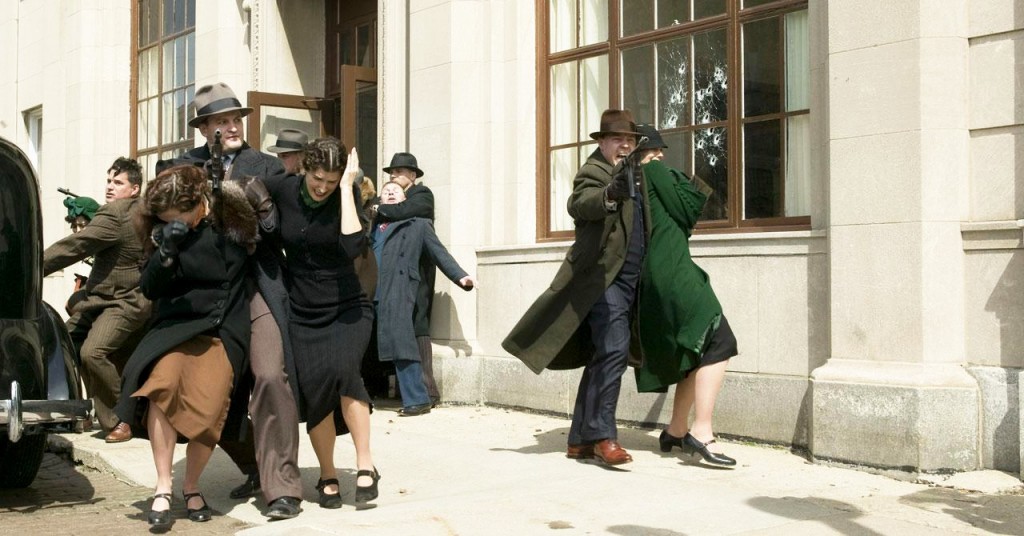
In the end, Public Enemies is a beautifully rendered period film which does little to bring any sense of emotional catharsis, nor is it a straight-up action flick (which, I think, would have been a better option), nor is it a really decent look at the formation of the FBI: the film can’t decide what it wants to be, thus becoming not much about anything at all, really. Dillinger is portrayed as a flamboyant iconoclast, Bale’s Purvis might as well have been carved from granite for all his character bends and flexes within this narrative, and Cotillard shines in the darkness as the lost-soul Frechette – Michael Mann delivers a few knockout action sequences, but underwhelming character work and an overabundance of characters to follow make Public Enemies a little too inaccessible as a viewer. Casual viewers will probably be underwhelmed, but genuine cinephiles will appreciate the craft behind it all. Worth a look, if only for Depps delightful work as Dillinger.


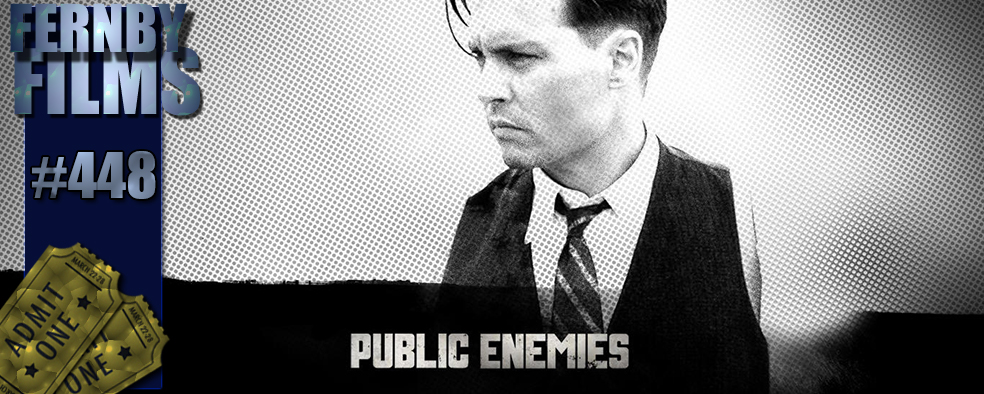

 “Public Enemies” Starring Johnny Depp
“Public Enemies” Starring Johnny Depp




Whenever I go to a film in the cinema and walk out saying I don't remember any of it, it's usually because I've had a hit of pot before going in – possibly mixed with some booze …
It wasn't such a bad film, but it wasn't great. One of my problems was nostalgic prejudice … anyone seen Dillinger? Remember Harry Dean Stanton's death scene. Or Richard Dreyfuss as Baby Face Nelson? The Mann version needed a bit more humorous grunt … a bit more of the Millius factor.
As for digital footage, watch 2012 and Apocalypto. It's not that bad … allows one to shoot scenes that aren't worth the dollars that 35mm would require. This, in turn, creates jobs for production assistants and best boys …
Ha ha, so you often go see films stoned? Is that it?
I'm not overly familiar with the film you mentioned – Dillinger – but I'll have to look into it. The Prohibition era holds a slightly romantic interest for me, so I'll have to have a gander! Digital footage is something I'm eagerly awaiting as we progress beyond 35mm film….
I think I'm a bit of a purist when it comes to the medium even though my favourite decade is the 1980s so it isn't as if I'm a stuck in the Studio Era. But I hate 3D and I prefer the look of film projection (and its use for photography) than digital video/projection. I like the "feel" of film – there's a movement to it on a cinema screen that you don't get from the too-perfect digital projection.
…but I realise that to move with the times digital is how it is going to be and I'll become used to it eventually. 3D I doubt I'll ever be sold on. It is a novelty that wears off very quickly.
Dan – I've never been sold on 3D either – it gives me a damn headache so I generally avoid it.
I agree with you regarding the "feel" of film projection, it does feel more organic than digital (since it is more organic than a simple series of binary code!), but I think the true game-changer for digital will be the upcoming Hobbit films, since Peter Jackson's shooting at 48fps and the image quality is said to be even better than what we've seen on the best BluRays to date. If people like what they see, I imagine that's the way films will be shot going forward, and shooting on film will be consigned – rightly or wrongly – to the scrapheap.
That being said, many old-school filmmakers seem to be hesitant about shooting digitally, at least until the technology improves, so now that the tech has caught up to, and even surpassed, film as a format for cinema, the younger brigade are realising the potential for their projects being camptured on digital.
A period film without the Benadryl haze, I loved the digital shoot. Then again I like this film much more than most.
Fitz for the touchdown!! Thanks man!
Hmmm…I switched this off after about half an hour because I wasn't enjoying it. For some reason, it didn't look the part to me…think it was something to do with digital photography. Great cast though but I prefer Depp when he's more eccentric.
Thanks Dan!
It's interesting that you prefer Depp when he's more eccentric – you think he does better at Jack Sparrow or Edward Scissorhands than he does when he's playing it stright? I think Depps main advantage is that he's a quite versatile actor, able to morph into different roles (or caricatures) fairly easily. Still, it's a preference, as you've stated, but I think it's interesting that you enjoy his… less straighforward performances.
The digital photography is probably the biggest factor in this films' success/failure, I think. A lot of folks thought it all looked too "fake", too "modern" than a period piece should have. It didn't worry me as much as others, but I can see how it could.
Agree with you again Rodney! I liked this a bit more but think the directing and acting save it. The thing is (like you said) the film devastatingly failed on an emotional level. Which in my opinion, given the source material that's a pretty big deal haha.
Nice review! I guess i'd give it a generous 8, i'm a sucker for this kind of film!
Hey Matty! We agree again? By crickey, people might start to think we're actually the same person! LOL! Yeah, I do think this film had so much squandered potential, considering the availbale material to source from with regards to the lives of those portrayed herein. And yes, I too am a sucker for these kinds of films, so I guess that's why it got a 7 from me instead of a 6. Add a point for enjoying a good trenchcoat.
I agree with Dan i found the digital aspect a bit distracting, it didn't work with the period setting for me. Apart from that thought, i remember almost nothing about it.
That's the vibe I'm getting from a lot of what's online about this film – it's decidedly unmemorable. Which is weird, considering the star power involved in it. Having said that, Depps more recent outing, The Tourist (which I will have a review for online in Q2 2012) was equally as unmemorable…..and that film featured Angelina Jolie!!! Gues it just goes to prove that even with the biggest stars in the world involved, a film is only as good as the story it's trying to tell…
i agree with Castor and with you. A 7-star movie because it was disjointed and underwhelming. i'm a huge Depp fan and he held his own here and i discovered Otis Taylor thanks to the soundtrack.
i guess what i'm saying is that it could be worse, it could be Super 8.
@ Scott – Yeah, people knew how to dress back then, right?
@ Al – It could be worse, if could have starred Nicolas Cage! 😉
I have seen Public Enemies, but I simply cannot remember a thing about it… Is that bad?
I love the period though, if I could go back in time it would be to this era. So swish, I love those damned suits
I didn't like the whole digital-camera style because I felt it made the film seem too much like it was just a film and not actual events happening, like is what we are supposed to have in the back of our minds when watching a period-piece. However, great performances from Cotillard and Depp, even though Bale may give one of his worst performances to date here. Good review Rod.
@ Castor – I can appreciate how you might see it as disjointed, when they're trying to tell a story encompassing such a large period of time into a two hour film, but I still say the script does a reasonably good job of picking out key moments of the narrative to focus on, even if the characters feel flat and lifeless. Thanks dude!
@ Dano O – See, I'm in the minority on this one, think, with regards to the digital cinematography. I liked the way this film was shot, especially the lighting and use of shadow, and I posit that the image quality you got didn't represent the expectation you had as to how a period film should look. Your expectation might have been something like a 60's gangster film, because we've all seen those kinds of movies and that's the innate understanding we have towards the presentation of this particular period of time on film. I think it was a unique and refreshing choice for Mann to shoot this film digitally, although I wish I could say it's always worked for him: Miami Vice looked terrible, and I only remember that dimly lit finale looking woeful in Collateral, so the technology has obviously improved in the meantime. I'll also disagree with you re Christian Bale's performance too, because for me it was the highlight of the film – I connected better with Bale's role than I did with Depp's (a shame, really, considering Bale's rather limited screen time didn't afford him much room to breathe life into his character) but I would be hard pressed to call his performance here "bad" by any stretch.
Public Enemies was a bit underwhelming and too disjointed for me. Obviously, great cast but I'm just not quite the story, as is, was worth bringing to the big screen.